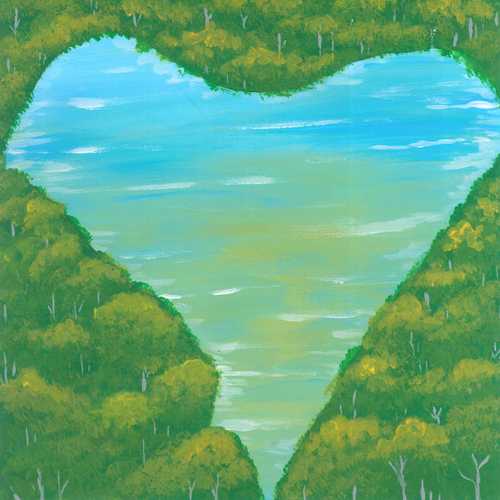
Elephant nomenclature, sharks in Indigenous myth, and space: the far-fetched frontier | Newsletter #54
Praṇāma*, friend. 🙋🏻♂️
How does the wildlife of Tanzania sound when it celebrates rainfall? Why isn’t living on Mars a viable way to save the Earth? And what can science learn from ancestral beliefs about the roles sharks play in the oceans?
Read on to find out.
*A formal greeting in Garhwali, one of the official languages of Mandal in Uttarakhand, India.
Soundscape of the week
“[A] vibrant summer dawn chorus of the densely forested valley nestled at 2,300 m in the […] Indian Himalayas. These rich forests on steep slopes are one of the rare, still intact examples of […] high biodiversity. Its unique habitats encompass diverse forest types, crystal-clear mountain streams, and serve as a haven for numerous rare species such as red panda and monal bird.”
The “subtle, tranquil ambiance” of Jan Brelih’s recording slowly intensifies into a chorus of whistles and diverse fluting, pulsing, and warbling calls, which feels at once cacophonous and melodic. A special prize* to any listener who can identify the winsome “squeal[s], twitter[s], ‘huff-quack[s],’ hiss[es] and grunt[s]” of a red panda.
*Personal satisfaction.
Articles and essays
🎤 “We have become disconnected from nature because people don’t think about the consequences of their behavior or their consumption patterns for the planet. So that comfortable life that many of us enjoy comes at a cost, and that cost is mostly hidden from people.”
In ‘Interview with Conservationist, Zoologist, and Field Recordist Chris Hails’, the British-born biologist’s insightful conversation with earth.fm curator Melissa Pons ranges from reminiscences about his life’s work in academia and conservation (including helping to establish hornbills in urban Singapore!) to his love of the natural world, tips for field recordists, and personal perspectives on recent changes to the natural world and suggestions of ways to reduce rampant biodiversity loss.
🌍 “All the wildlife seemed to be celebrating the arrival of the rains. There were nature sounds everywhere! The birds started singing at 2am in the morning and continued throughout the day. Amidst the bird song, there were also crickets, large beetles, bats, frogs, hyenas, zebras and occasional lion roars from a distance, allowing us to sleep and reawaken our senses, be present and reconnect to the natural sounds of Tarangire plains.”
The latest episode of the Wind Is the Original Radio podcast, Martha Mutiso’s multilayered ‘Dawn Chorus in Tarangire’, allows the listener to eavesdrop on her trip to Tarangire National Park, Tanzania. Flora such as enormous baobab trees and fauna including the African elephant explains why the region “is popularly known as the land of giants”!
Other installments of Wind Is the Original Radio are available on Apple and Google podcasts, Spotify, and Stitcher, with new episodes released every Friday.

From the extended community
🛸 ‘Sorry, Billionaires. Space Won’t Be Our Climate Haven’ debunks spurious proposals by billionaire tech blowhards such as Elon Musk and Jeff Bezos that leaving the Earth could be a magic bullet for saving it. Putting aside the irony that “the richest 1% of humanity is responsible for more carbon emissions than the poorest 66%”, and just “twelve of the world’s wealthiest billionaires produce more greenhouse gas emissions […] than the annual energy emissions of 2m homes”, “Space sucks. […] [Even] the least-bad places [in the solar system] still have high radiation, dangerous soil, and low gravity with unknown medical effects. Also there’s no air, no running water, and […] the best options are far away, insanely expensive, or both.”
Plus, there’s the untenability of everything from making cement on the moon (a no-go), inventing environmentally friendly rocket propellent, producing solar energy in space, or putting a dent in a population of more than eight billion people by having them live off-planet (Bezos’ smart idea; a new underclass we can all look forward to being part of) – or, in fact, simply managing to stay alive anywhere that isn’t the surface of the Earth. So, take off those moonboots and – here’s an idea – maybe we could all focus on solving the problems we’ve caused here on planet Earth?
🐘 ‘Elephants Give Each Other Names — the 1st Non-human Animals to Do So, Study Claims’: researchers in two locations in Kenya have identified “[low, rumbling] vocalizations specific to individuals […] — [to which] recipients responded accordingly”. This makes elephants the first animals which we are aware of addressing each other in this way (as opposed to dolphins and parrots, which imitate an individual’s calls to address them specifically).
🦈 “Indigenous communities have long understood the ecological significance of sharks and their role in maintaining the delicate harmony of oceanic ecosystems. By aligning scientific findings with ancient myths, researchers are gaining a more comprehensive understanding of the complex interconnections between humans, sharks, and the natural world.”
‘Unveiling the Mystical Connections: Sharks and Indigenous Mythology’ probes “the profound connections that exist between [the] ancient beliefs [of Indigenous peoples including the Māori of New Zealand and Australia’s Torres Strait Islanders] and the majestic predators of the ocean”. Ancestral knowledge which views sharks as guardians of the oceans is “not merely folklore; [it] hold[s] profound ecological wisdom”, and is now being recognised by the scientific community, where it is becoming clear “that sharks play a vital role in maintaining healthy marine ecosystems by regulating prey populations and […] influencing the behavior and distribution of other species”.
👉🏽 Follow us on X, the platform formerly known as Twitter, for a daily dose of nature-sound inspiration!
How to support earth.fm
All 600+ of our curated, immersive soundscapes are free to listen to, but if you want to help us grow new forests, please become a supporter!
There are three options available, and you will also be able to favorite recordings, create and share playlists, and many other perks – plus a big surprise is coming exclusively to members in the next few weeks!
Until next time, we wish you a regenerative week. 🙏
With best wishes,
Neil and Team earth.fm
Reach out on hello@earth.fm 👋
Forward this newsletter to anyone who would appreciate it ✉️
Join the conversation with the Earth.fm community 🤝
Submit a recording 🎤
Follow us on Twitter. Instagram and YouTube 💻
Listen to nature sounds in your browser by installing our free extension 🎧
Earth.fm is a completely free streaming service of 1000+ nature sounds from around the world, offering natural soundscapes and guided meditations for people who wish to listen to nature, relax, and become more connected. Launched in 2022, Earth.fm is a non-profit and a 1% for the Planet Environmental Partner.
Check out our recordings of nature ambience from sound recordists and artists spanning the globe, our thematic playlists of immersive soundscapes and our Wind Is the Original Radio podcast.
You can join the Earth.fm family by signing up for our newsletter of weekly inspiration for your precious ears, or become a member to enjoy the extra Earth.fm features and goodies and support us on our mission.
Subscription fees contribute to growing our library of authentic nature sounds, research into topics like noise pollution and the connection between nature and mental wellbeing, as well as funding grants that support emerging nature sound recordists from underprivileged communities.

